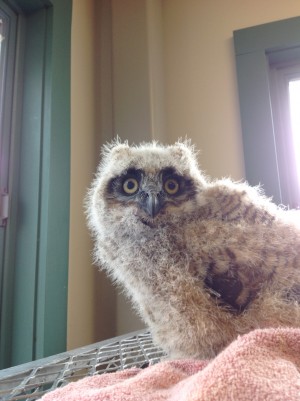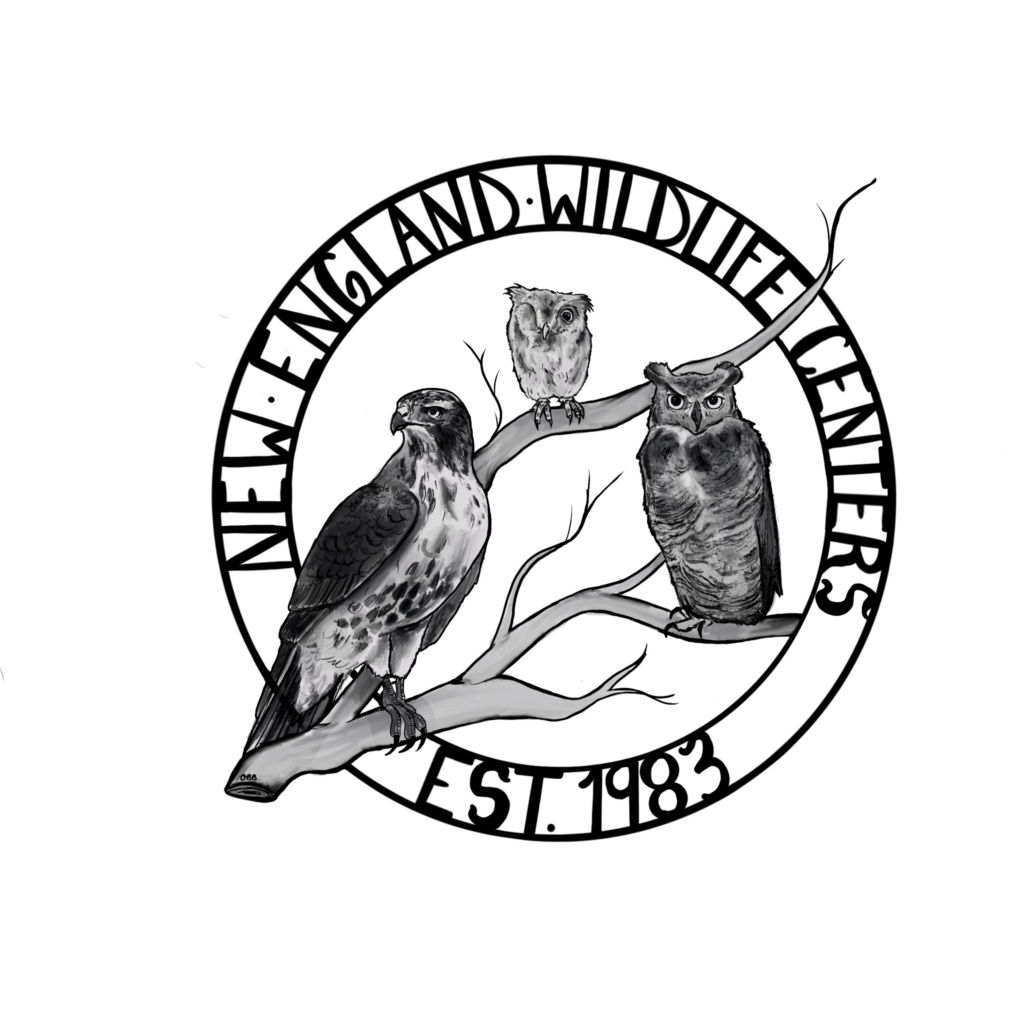We recently admitted a very young great horned owl to our hospital. He came to us in perfect health after being found wandering around by a concerned passerby. Most likely he fell out of his nest, then went searching for food and ended up on a sidewalk where he wasn’t supposed to be. Regardless, it was very nice to find out that he was healthy. When we admit a healthy baby orphan there are generally two options. The first, and this is the less preferable one, is that we raise them at NEWC until they reach an age where they are able to fend for themselves in the wild. This can often be quite late, for example this owl would likely not be ready for release for several months at least. The downside to this is primarily that the animal will not be raised in an ideal environment. Parents often shows their babies basic skills such as hunting, foraging, or hiding depending on the species in question, and animals raised with humans often become too used to us despite our best efforts and become more prone to wandering into humans that they find once they have been released. This is very dangerous for them. Unless there is some pressing danger in the environment that prevents the animal from having a good chance for natural survival it is much preferable to allow wild animals to be raised in the wild by their own species.
This leads to the second option we have with healthy wild babies, and this is the option we prefer when it is possible. We can foster them out to a different family of wild animals of the same species. This does not work for every animal, and indeed can often be dangerous if it is a member of a species that is selective about how they care for their young. Great horned owls, fortunately, tend to raise their young without paying too much attention to specific individuals. If the babies are all the same size and are all healthy the parents won’t notice an extra owl being placed into the nest while they are away. We are moving our baby great horned owl today to a special facility that keeps a list of local known nests belonging to birds of prey, and our baby will be fostered into one of those with appropriately aged young. This will allow him to have as natural an upbringing as possible with no chance of being imprinted upon or becoming too familiar with humans.
Although it is often exciting to have interesting animals such as owls here at NEWC, we are very happy that we were able to arrange for him to go back to the wild this quickly. It is always better for wildlife to be in the wild whenever possible.


